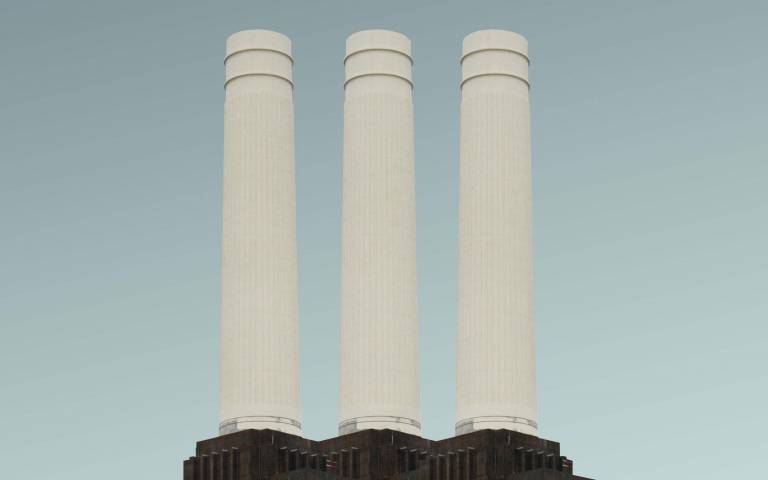4-year UCL funded PhD studentship in aerosol diffusion samplers
17 August 2022
Apply for this 4-year funded PhD studentship to develop new air quality monitoring technologies for aerosols using experiments and simulations.

Key information
Supervisors
- Dr Josep Grau-Bove, UCL Institute for Sustainable Heritage
- Dr Samuel Stamp, UCL Institute for Environmental Design and Engineering
Funding
The studentship funded by the UCL Bartlett School of Environment, Energy and Resources will cover UK course fees and tax-free stipend of approx. £18,000* per year for 4 years. There will be a possibility to apply for additional funding to cover research related expenses, activities, travel.
* Exact amount still to be confirmed
Stipend
The successful candidate will be expected to contribute to teaching and related duties for approximately 25% of their time for the duration of your studentship. The monthly commitment may vary depending on the time during the academic year.
Deadline for applications
Sunday 2 October 2022 23:59PM (UK time)
Jump to: Background | Studentship aims | Person specification | Application procedure | Contacts
Background
Fine particulate matter is associated with health risks, and recent research has also demonstrated its negative effects in other areas, such as the degradation of cultural heritage. However, the existing technologies to monitor aerosols are expensive and therefore not used widely to assess risks and in routine monitoring.
We are looking for a PhD candidate who wants to investigate aerosol deposition, developing innovative solutions that can change the way these pollutants are monitored indoors. This project can be approached in several ways, depending on the interests of candidates:
- Developing passive monitoring devices, which will be designed, prototyped, and tested in-situ and in the lab.
- Testing the benefits and drawbacks of monitoring technologies for their use in real historic environments, comparing low-cost and cutting edge equipment.
- Simulating the indoor environment using computational fluid dynamics, to investigate the suitability of sampling plans and mitigation strategies.
- Using and evaluating citizen-science methods to involve the public in monitoring. Understand the error and repeatability issues that emerge from this method and how they are balanced with the engagement benefits.
- Modelling the consequences of deposition, by conducting experiments on the interaction between deposited particles and different types of substrates. The degradation pathways of many pollutants indoors, such as microplastics, are still unknown.
Studentship aims
The overall aim of this PhD is to design, test and evaluate in real environments improved methods of aerosol deposition monitoring. The focus and methodology of the project will adapt to the interest of PhD candidates: it can be lab-based or focus on in-situ monitoring, rely on simulations or experiments, use advanced monitoring devices or citizen science. Independently of the methodology, the PhD candidate will make a scientific contribution with real-world impact, which will improving monitoring and analysis protocols.
Person specification
Applicants should meet the UCL Institute of Sustainable Heritage PhD programme requirements.
A minimum of an upper second-class UK Bachelor's degree and a Master's degree, or an overseas qualification of an equivalent standard, in a relevant subject, is essential. Exceptionally: where applicants have other suitable research or professional experience, they may be admitted without a Master's degree; or where applicants have a lower second-class UK Honours Bachelor's degree (2:2) (or equivalent) they must possess a relevant Master's degree to be admitted.
All applicants must also meet the minimum language requirements of UCL.
Application procedure
Stage 1 – Eligibility and How to apply
Please submit a pre-application by email to bseer-phd-admin@ucl.ac.uk with the Subject Reference: '4-year PhD studentship Aerosol diffusion samplers'
Your pre- application should include the following:
- A covering letter clearly stating why you wish to apply for the project outlining how your interests and experience relate to it,
- CV
- Complete our Fees and EDI questionnaire via the linked Microsoft Forms
Stage 2 – Interview process
Only shortlisted applicants will be invited for an interview.
- For the interview shortlisted candidates will be asked to send proof of their degree certificate(s) and transcript(s) of degree(s), and evidence of their fees background.
- The interview panel will consist of the project’s academic supervisors at UCL.
- The interview will include a short presentation from the candidate on their ideas of how to approach this PhD project.
- Following the interview, the successful candidate will be invited to make a formal application to the UCL Institute of Sustainable Heritage.
Deadline for applications
Sunday 2 October 2022 23:59PM (UK time)
Interviews week commencing
TBC
Contacts
The successful candidate will be undertaking this project in UCL at the main (Bloomsbury) campus and lab work may be conducted at UCL Here East (Stratford), For more information, please visit the UCL Institute of Sustainable Heritage website.
For further details about the admission process, please contact: bseer-phd-admin@ucl.ac.uk
For any further details regarding the project, contact Dr Josep Grau-Bove: josep.grau.bove@ucl.ac.uk and/or Dr Samuel Stamp: samuel.stamp@ucl.ac.uk
 Close
Close

